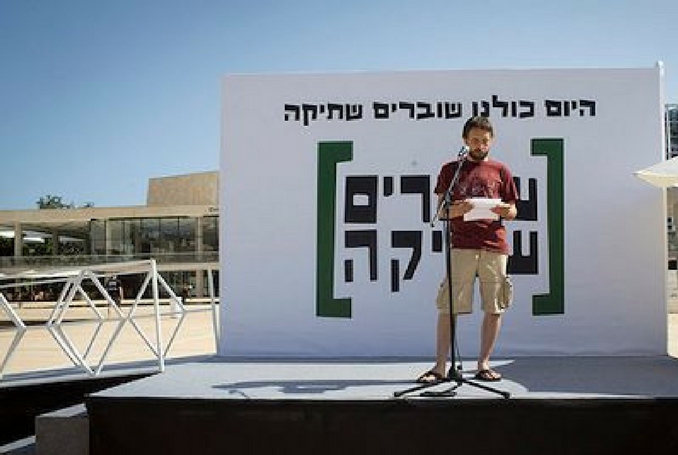
The Israeli Knesset has approved the first reading of a bill proposed by Education Minister Naftali Bennett, that would ban organizations critical of the country’s military.
Bennet’s primary target is the group known as Breaking the Silence. The organization of veteran Israeli combatants who speak out against the brutal nature of the occupation has become a major thorn for the government.
Addressing the bill, Bennett said: “Breaking the Silence has long ago crossed the line of legitimate discourse when it chose a path of slander and lies against IDF soldiers on the international stage.” Another Israeli lawmaker Shuli Mualem accused Breaking the Silence of seeking to “undermine” the regime and its army soldiers.
Knesset gives initial nod to bill that would muzzle Breaking the Silence https://t.co/wGFE23J30X
— Haaretz.com (@haaretzcom) February 27, 2018
In their response to the bill, the group accused Bennett of promoting “occupation education” and trying to “crush every democratic value on the altar of the settlement movement.”
The anti-occupation group further emphasized that “the only way to stop us is to end the occupation.”
This bill is the latest in a long list of measures adopted by the Israeli Knesset to suppress dissenting voices in the country. Last November, a law was introduced to criminalize activists that support the Boycott, Divestment and Sanctions (BDS) movement.
Watch our Executive Director, @AGvaryahu, in this piercing interview with one of the world’s leading TV programs, @BBCHARDtalk with @stephensackur.
The full interview>> https://t.co/BVem9MVfYH pic.twitter.com/wIA1ZU7JJC— Breaking the Silence (@BtSIsrael) February 15, 2018
A separate bill paving the way for annexation of the West Bank was also approved yesterday. Israeli lawmakers agreed to expand the jurisdiction of Israeli courts over “Area C” of the West Bank. The Bill was tabled by another right-wing Israeli minister, Ayelet Shaked.
(MEMO, PC, Social Media)








I really dislike how the interviewer in the video segment is trying to equate the question of individuals’ moral responsibilities with a choice between a two-state solution or something else (one state, no state, whatever).